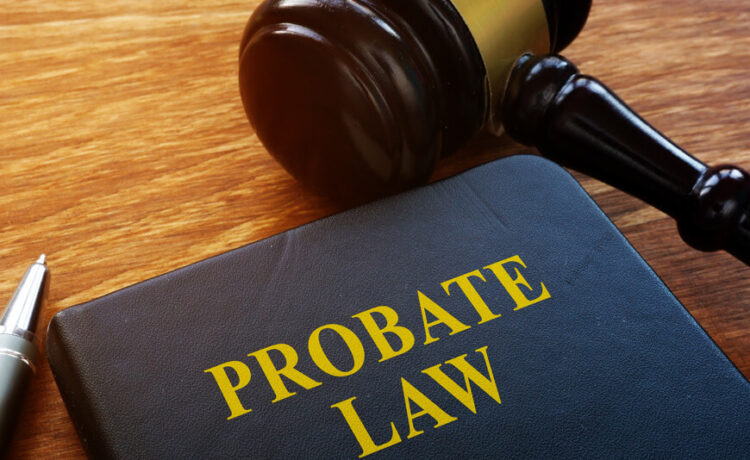Probate can be a long and costly process in South Carolina. It involves court supervision of the transfer of a deceased person’s assets to their heirs and beneficiaries. The probate process validates the will, pays outstanding debts, taxes, and fees, and distributes the remaining assets. This legal process can take over a year in some cases and cost up to 5% of the total value of the estate.
Fortunately, there are a few ways to avoid probate in South Carolina. Proper estate planning strategies and the help of an experienced Anderson estate planning attorney can help you transfer your assets directly to your loved ones without court intervention upon your death.
What is Probate, and Why Avoid It?
Probate is a legal process that gives the probate court oversight of administering a deceased person’s estate. The court supervises the executor named in the will (or an administrator if there is no will) as they identify assets, pay debts and taxes, and distribute inherited assets to beneficiaries.
The probate process can be time-consuming and costly. Legal fees, appraisal costs, court costs, and executor fees can add up, reducing the assets inherited by beneficiaries. The process also exposes the estate’s finances to the public record.
For these reasons, many people wish to avoid probate. The most common probate avoidance strategies involve retitling assets and designating beneficiaries so that assets transfer automatically upon death.
South Carolina Probate Laws and Requirements
South Carolina has adopted the Uniform Probate Code, standardizing many probate practices across states.
Here are some key aspects of probate administration in South Carolina:
- Court supervision – The probate court supervises the entire administration of the estate. This provides oversight but also adds time and costs.
- Timeframe – The estate must remain open for at least 6 months after the appointment of the personal representative. Total time frames average 12-18 months.
- Costs – Attorney’s fees, personal representative fees, bonding costs, appraisal fees, court costs, and accounting fees can add up. Total costs often range from 3-7% of the gross estate value.
- Estate thresholds – Estates valued under $25,000 may be eligible for expedited probate procedures. Estates under $100,000 can use simplified procedures.
- Will requirements – A valid will must be signed by the testator and two witnesses. Holographic (handwritten) wills are recognized if signed and material portions are in the testator’s handwriting.
Top 3 Ways to Avoid Probate in South Carolina
-
Use a Revocable Living Trust
A revocable living trust is considered one of the most effective methods to bypass probate in South Carolina. With a living trust, you transfer ownership of your assets to yourself as the trustee of the trust during your lifetime. This allows you to maintain full control of your assets while avoiding probate. Upon your death, the assets in the trust pass directly to your named beneficiaries without going through probate court.
Living trusts are customizable, so you can structure your trust however you want and avoid probate for all your major assets. You can designate individual beneficiaries for specific assets or have all trust assets distributed to your beneficiaries by percentage. Living trusts also allow you to appoint a successor trustee to manage the trust if you become incapacitated.
-
Use Joint Ownership with Right of Survivorship
Possessing property as joint tenants with rights of survivorship is another simple way to avoid probate in South Carolina. With joint tenancy, two or more people share equal ownership of an asset. When one owner dies, their interest automatically passes to the surviving owner and avoids probate. This feature makes joint tenancy a useful probate avoidance tool between spouses and partners.
Joint tenancy works well for real estate, vehicles, bank accounts, and investment accounts. To create joint tenancy ownership, the title or deed must specify joint ownership with rights of survivorship. Without this language, the default ownership is tenants in common, and assets would require probate to pass to heirs.
-
Name Payable on Death Beneficiaries
Naming payable-on-death (POD) beneficiaries is an easy way to avoid probate for bank and investment accounts. With POD accounts, you retain full ownership and control over the assets during your lifetime. Upon your death, the accounts pass directly to the named beneficiaries. The beneficiaries can claim the money from the bank without any court proceedings.
In South Carolina, you can add POD designations to savings accounts, checking accounts, certificates of deposit (CDs), and investment accounts. POD accounts allow you to distribute your assets directly to your intended beneficiaries while avoiding probate.
Can Transfer on Death Deeds be Used?
In South Carolina, a TOD provision allows an individual to transfer certain assets to a named beneficiary upon death without going through the probate process. This can apply to assets such as bank accounts, brokerage accounts, and securities. However, South Carolina law does not allow real estate to be transferred via TOD deeds.
Evaluate Probate Options for Small Estates
In South Carolina, smaller estates may qualify for simplified probate procedures faster and less costly than full probate administration. The state allows expedited procedures for estates valued at $100,000 or less. This “small estate” affidavit process only takes a few weeks compared to over a year for full probate.
Even if your entire estate does not qualify as a small estate, strategies like living trusts can pass most assets outside of probate. You may only need the small estate process for a few remaining assets. Working with an experienced probate lawyer will help steer you toward the best options for you and your family.
Work with an Attorney to Customize Your Probate Avoidance Plan
The ideal probate avoidance strategy depends on your specific situation and assets. An estate planning attorney can help analyze your estate and recommend a personalized plan using the most appropriate probate avoidance tools. This is key to ensuring assets are distributed properly without unnecessary court proceedings.
Taking the right steps to avoid probate in South Carolina can save your loved ones significant time, money, and hassle during an already challenging time. With proper planning, you can feel confident knowing your assets will transfer smoothly when the time comes. Reach out to Steele Family Law to discuss the best options for avoiding probate based on your situation.















